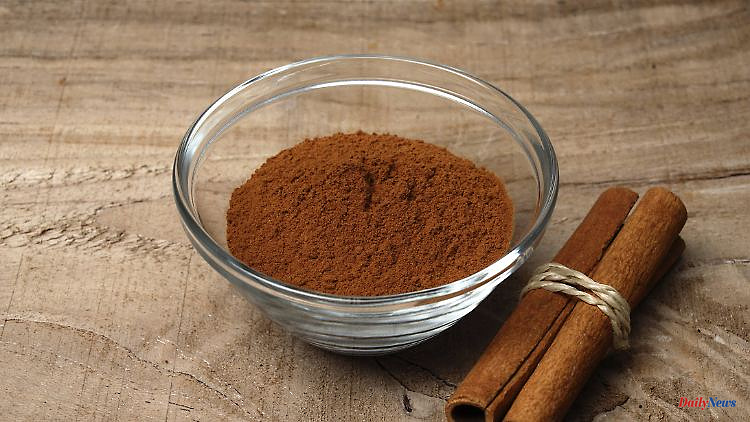In this country, cinnamon is mainly found in sweets. In other countries, it is also found in savory dishes. But the spice not only brings a certain kick to the delicacies, but can also support brain performance, as studies show.
A team of researchers has found that consuming cinnamon can positively affect learning abilities and memory. The researchers at Birjand University of Medical Sciences in Iran combed through several databases and found more than 2,600 studies in which the effects of cinnamon had already been examined. From these, they in turn selected 40 relevant studies for their systematic review and viewed their results. It turned out that cinnamon actually has a measurable effect on human cognitive abilities.
The majority of the 33 studies in which the effects of cinnamon or its components such as eugenol, cinnamic aldehyde and cinnamic acid were examined in vivo, i.e. on living organisms, came to the measurable positive effects, reports the research team in the journal "Nutritional Neuroscience". In the five studies on cells (in vitro), the researchers saw another possible effect of cinnamon. There is evidence that cinnamon components increase cell growth and cell viability on the one hand and slow down the deposits of so-called tau proteins and beta-amyloid proteins on the other. These are suspected of being involved in the development of Alzheimer's and dementia.
According to the research team, however, the two clinical studies whose results were also included in the review came to two different conclusions. In one study, the scientists saw positive effects and another reported no changes in the subjects' cognitive functions. This shows that it is far from clear how much and how often you have to eat cinnamon for the spice, which is extracted from a tree bark, to actually strengthen cognitive powers and reduce the risk of neurodegenerative diseases.
However, the research team from Iran believes it is possible to use cinnamon as a so-called adjuvant. This means cinnamon could be a kind of enhancer for other herbs. But whether cinnamon works in this way has yet to be clarified in further studies.
There is already a lot of evidence from previous studies that cinnamon has health-promoting properties. It is said to stimulate digestion, metabolism, appetite and blood circulation, lower blood sugar and cholesterol levels and even have a positive effect on mood and memory as a fragrance. However, cinnamon can also have adverse health effects when overdosed, triggering symptoms such as headaches, nausea and dizziness. Very sensitive people or a large amount of cinnamon consumed can even lead to symptoms of poisoning and liver damage.
The reason for this is the coumarin contained in cinnamon. The Federal Office for Risk Assessment (BfR) has set a maximum daily limit of 0.1 milligrams of coumarin per kilogram of body weight for an adult. The body tolerates this dose without any problems.
What that means for the amount of cinnamon that can be consumed daily cannot be answered so easily, because cinnamon is not the same as cinnamon. The amount of coumarin in cinnamon depends mainly on the variety. One kilogram of cassia cinnamon contains around 2 grams of coumarin, while Ceylon cinnamon only contains 0.02 grams. should use the low-coumarin Ceylon cinnamon", advises the BfR.
Pregnant women, on the other hand, should avoid cinnamon altogether. The essential oil is said to have labor-inducing effects. Pregnant women should therefore avoid the highly concentrated cinnamon oil from the bark and leaves.












